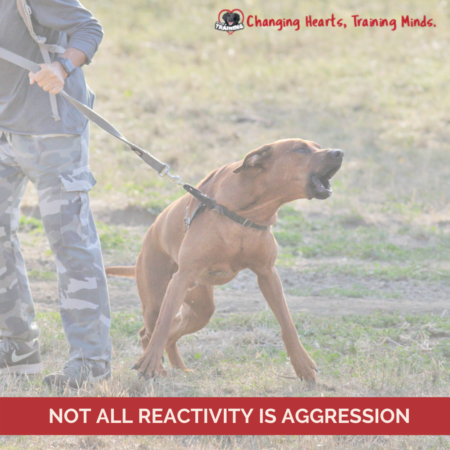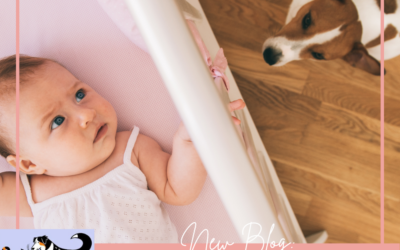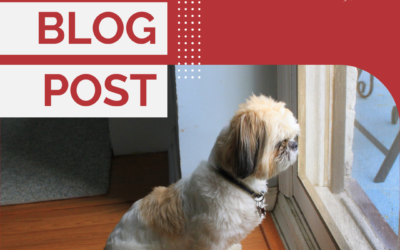There’s a lot of euphemisms in dog training, mostly trying to smooth over things that don’t sit well with us. Aversive trainers and electric fence companies will tell you the shock collar is “just a vibration like your cell phone.” People who have dogs who are afraid of strangers often spin it as “he’s protecting me.” Recently there’s been a big increase in “reactivity” being a catch all term for all dogs who bark, lunge or otherwise alert to stuff, without any distinction between dogs who are fearful and those who might be frustrated. And I understand, as an owner, it’s hard to know the difference. Even for professionals it can be hard in some cases. But the danger of lumping all dogs, regardless of what their underlying issue is, into a broad reactivity category is we may not be addressing the dog’s real issue and could be depriving them of appropriate opportunities.
If you have a dog who is reactive on leash who lunges, growls or barks at other dogs, it would be a normal assumption to make that your dog is “aggressive.” But what if they’re not? What if they’re frustrated? What if the barking, lunging, growling and posturing isn’t to try to keep that other dog away but is that your dog is actually social and friendly and doesn’t have a good way to express the frustration he feels because he’s on a leash (or behind a barrier, fence, etc.) that prevents him from having the social interaction he so desperately wants? You may have seen this video or similar, where dogs look very aggressive – snarling, snapping – at other dogs through a gate and when the gate is removed, the dogs go on their way. If they truly wanted to go after the other dogs, they could have simply moved around the gate. This is a great example of barrier frustration and it can happen with fences, windows, leashes or other barriers or restraints.
Of course some dogs may be afraid of other dogs and they are lunging, barking or growling in attempt to communicate “please keep your distance” but we cannot tell just by looking at them. This is why my first question when I have a client contact me about leash reactivity is “how’s the off-leash play?” If they tell me their dog goes to the dog park or plays well off-leash, then the dog is probably barrier frustrated. If there’s negative play history (resulting in injuries) or no play history, then we make a plan.
Does it matter? Absolutely. While the plan for training whether the dog is fearful or frustrated is similar, if we don’t dive into making a distinction we could be sentencing a dog who is frustrated and social, to a life of solitary confinement, being deprived of interactions with his own species and that’s inhumane. That’s like saying you as a human can’t have any interactions with your friends because you’ve bickered or yelled at a friend in the past. This is why working with a qualified behavior professional is so very important. If you need help, you can schedule your session here!
Happy training!
![]()




